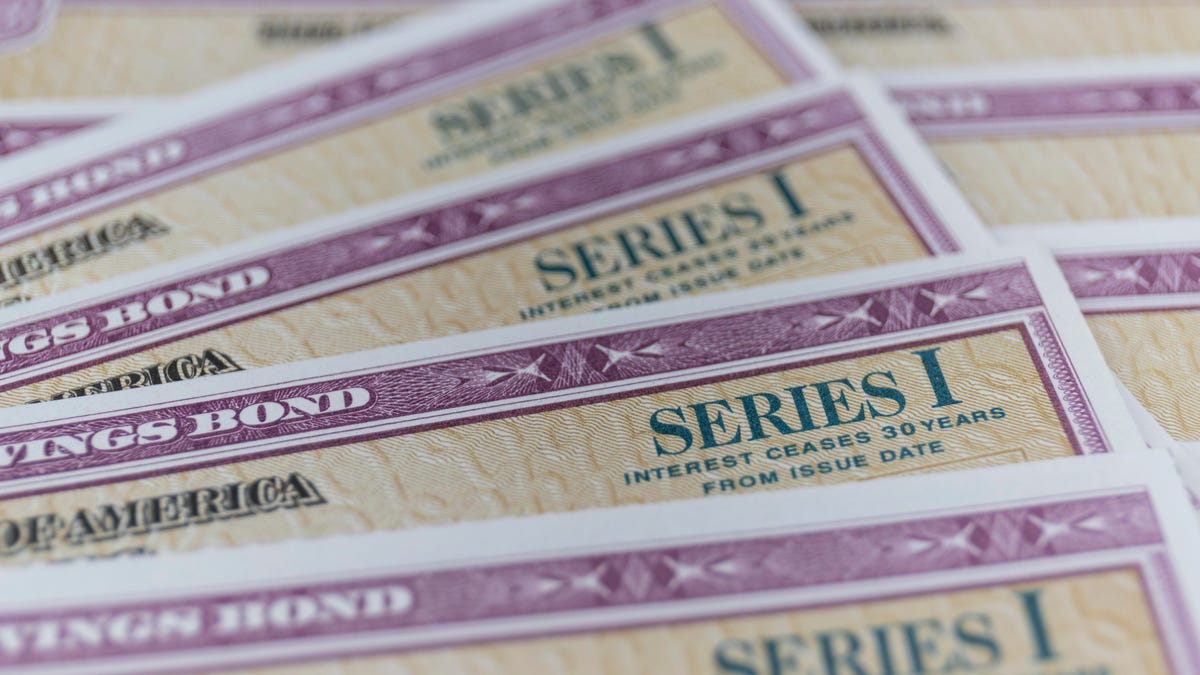Are I Bonds the Best Savings Strategy When Inflation is High? It Depends
Right now, I bonds offer higher interest rates than traditional savings accounts -- but there are drawbacks to consider.

You can purchase I bonds directly from the government via the Treasury department website.
Inflation remains high at 8.3% over the past year, and it continues to make life more expensive for most of us. While the cost of gas dropped last month, housing and food prices continue to rise, according to the latest Consumer Price Index reading. If you're looking for a safe way to grow your savings, you might consider an I bond, which can help you hedge against inflation. But it may not be the right option for everyone.
I bonds have both a fixed rate and an inflation rate that's adjusted every six months. Right now, I bonds will deliver a 9.62% annualized interest rate, which means that they'll get you higher returns than other traditional savings methods, like savings accounts.
The attractive yield has spurred Americans to open more than 1.5 million accounts since last November. Before that period, there were fewer than 1 million I bond accounts in total, according to Treasury data cited in The Wall Street Journal.
With widespread concern about the current economic downturn and anxiety over layoffs, many of us are considering savings strategies to add some cushion to our financial future. Depending on your needs and goals, an I bond may work best… or not. Here are my recommendations, based on a few common hypothetical scenarios.
Benefits of an I bond
In today's savings market, I bonds stand out for their top-yielding returns and relatively low risk. Because they're investments backed by the US Treasury, you're guaranteed to secure your principal at the very least, so they'll never lose value. With a potential recession ahead, I bonds can offer you some financial security. And while you do have to pay federal income tax on the gains, I bonds are exempt from state and local taxes. If the savings are used for higher education purposes, the IRS may let you skip taxes on them altogether.
When an I bond makes sense
- You're saving for a big expense in the short term: Whether your goal is to afford a wedding, a home down payment or a new car in the next few years, you can start saving now -- safely. Investing in the stock market may not be wise since it could take several years to recover from bear market losses. Instead, to ensure that inflation doesn't continue to erode the power of your cash, take advantage of accounts like I bonds with higher annual yields so that your savings won't lose value. Just remember that I bond purchases are limited to $10,000 per person each year, so if you have to set aside more than that, you can save the remainder in a high-yield account.
- You want higher returns with no risk: Let's assume that after paying your bills, saving in an emergency fund and adding to your long-term investment accounts, you have a few hundred dollars to spare each month and want to get the greatest financial return without the risk of stock market volatility. If you purchase I bonds with those savings, you'll get solid returns today without taking any chances. Later, depending on your financial goals, you can decide if it makes more sense to keep the cash in the I bonds or move it elsewhere.
Read more: Best CD Rates for 2022
Disadvantages of an I bond
I bonds do come with strings attached. For example, you must keep your cash locked up for the first year. There's also a five-year holding period during which if you take money out, you risk forfeiting the final three months of earned interest. You're also limited to buying no more than $10,000 worth of electronic I bonds per year. You can buy I bonds straight from the Treasury's website, but the process has reportedly been difficult for some. In several cases, the Treasury hasn't been able to confirm people's identities, requiring added steps and cutting through bureaucratic tape.
When an I bond doesn't make sense
- You're investing for the long term: If you want to grow your money for the future and get a higher rate of return for your long-term savings, you could invest that cash in a diversified portfolio of majority stocks and some bonds through either a workplace retirement account like a 401(k) or an Individual Retirement Account. While the S&P 500 or broader stock market is not performing as well as I bonds at the moment, stock gains have been better over previous decades. And while I bonds carry an attractive yield now because of the rate of inflation, the economy will eventually cool and so will I bond returns.
- You have income insecurity and need cash liquidity: Whether you're worried about a possible recession and possibly getting laid off or have plans to quit before finding your next role, having savings to cover a minimum few months of unemployment in the next 12 to 18 months may be vital to staying financially afloat. While a high rate of return on your cash is always ideal, the more immediate priority for someone who's worried about income security is a bank account that offers liquidity and easy access. In this case, an I bond doesn't really make sense because you wouldn't be able to touch your money for the first year. Instead, consider an account with branches or ATMs conveniently near your home or a digital bank that provides easy and quick money transfers, including a high-yield savings account.
In summary: Whether an I bond is worth it is a personal question. Earning a high rate of return is great, but it's important to consider the trade-offs that come with the 12-month holding restriction or not investing those savings for your retirement.

